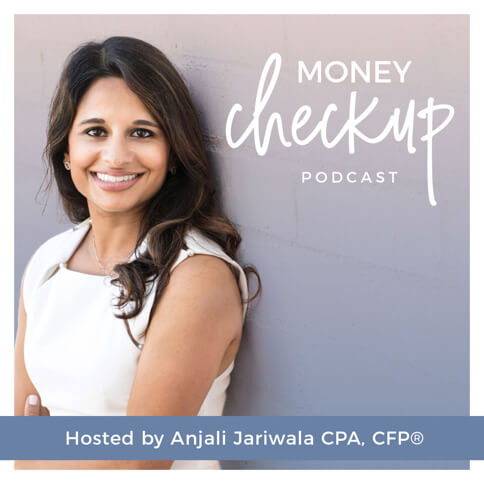Prenuptial agreements, more commonly known as prenups, are becoming increasingly common. As the average age of first marriage rises in the U.S., soon-to-be spouses often have more financial assets than previous generations did when they married — meaning they have more to protect in case of divorce or separation.
A prenuptial agreement is a contract created before marriage that specifies how both partners’ assets will be treated in case of divorce, separation or death. Generally, prenups spell out all the property that each partner owns and any debt that they carry. In most states, courts consider property acquired during marriage to be jointly owned by both partners; prenups help keep separately owned property separate.
While prenups were once considered taboo, they are becoming increasingly common as more adults marry later in life, having already built wealth; or enter into second marriages, creating blended families.
Not everyone needs a prenup. Not everyone wants one. But as you and your partner discuss marriage, consider talking about whether you want to protect your separate assets as well.
Do You Need a Prenuptial Agreement?
The purpose of a prenuptial agreement is to protect any property you owned prior to your marriage in case of divorce or separation. A prenuptial agreement can also address what will happen in case of your death (although it is not a substitute for updating your estate planning documents!)
Generally speaking, if you have assets that you want to keep separately from your spouse, you should consider a prenuptial agreement. For example, if you are getting married later in life, you may have accrued assets that you want to protect.
If you had children prior to your marriage, you may wish to reserve property for those children specifically. For example, you may be planning to leave your children the majority of your assets, particularly if your spouse has assets of their own. If you and your spouse divorce — or if you die before your spouse and have not updated your estate planning documents — your surviving spouse might have a larger claim to your assets, leaving less than you hoped for your children.
Additionally, if you have a property you want to keep within your family, such as family homes, heirlooms, gifts from immediate family, or future inheritances, you can include language in your prenup about what will happen to those assets in case of divorce or death.
Remember that prenups are subject to a judge’s review — and judges can and do throw out prenups that they deem unfair. If you choose to create a prenup, each spouse should be represented by their own attorney.
Interestingly, a prenup can offer couples the chance to build a strong foundation when it comes to transparent conversations about finances. The process requires full disclosure of all your assets, so it will offer you and your soon-to-be spouse lots of opportunities to talk about your financial and personal values.
In Case of Divorce: What a Prenup Can and Cannot Do
Like estate planning documents, prenups can help couples avoid the cost and emotion of going to court. If you choose to divorce, you will still have to go through the legal divorce process, particularly because custodial and parental rights cannot be specified by a prenup. However, you will have much more control over the process of how your assets are divided.
When a couple divorces, the court’s first step is to identify all of their assets and specify what is separate property and what is community property.
In “community property states” — including California, Texas, and Washington, among others — all assets acquired during a marriage are considered community property, which means both partners have an equal share in those assets. Community property is generally divided 50/50 during a divorce. In “equitable distribution” states, the judge has wide latitude to divide community property in a way they deem equitable.
A properly drafted prenup describes, in detail, what assets are separate property belonging to each partner. A prenup can also explain how those assets are to be treated in case of divorce, and how you will divide community property if it differs from your state’s laws.
Additionally, prenups can address how alimony will be addressed. Debt can also be considered community property and, if a couple divorces, a judge can order debt split between both partners. If one partner has a significant amount of debt, prenups can include provisions that limit the other partner’s responsibility for that debt.
How to Create a Prenup
If you think a prenuptial agreement might be valuable to you, the first step is to have a conversation with your partner. Aim for an open, honest discussion about your values and goals. Not every couple needs or wants a prenup, and if you decide that you fall into that category, then at least you got to practice having hard conversations about finances!
Marriage and family attorneys can help you create your prenuptial agreement. Once again, like estate planning documents, do not simply download a template from LegalZoom — you may leave critical holes that cause the agreement to be void. Each person should have their own counsel. Some states even require it.
After you get married, make sure your finances are consistent with the terms of your prenuptial agreement. As you update your estate planning documents, for instance, make sure your attorney understands the provisions of your prenup so they don’t contradict one another. If you choose to keep financial assets separate, make sure those assets are not commingled.
Along with the joy (and stress!) of planning a wedding and a life together, some soon-to-be-married couples may find that prenuptial agreements offer helpful legal protections. Even if a prenup isn’t right for you, however, financial planning is still an important part of planning for marriage. Make sure you and your partner make time for conversations about your values, your approaches to money, and your goals, so that you enter the next phase of your life on the same page.




